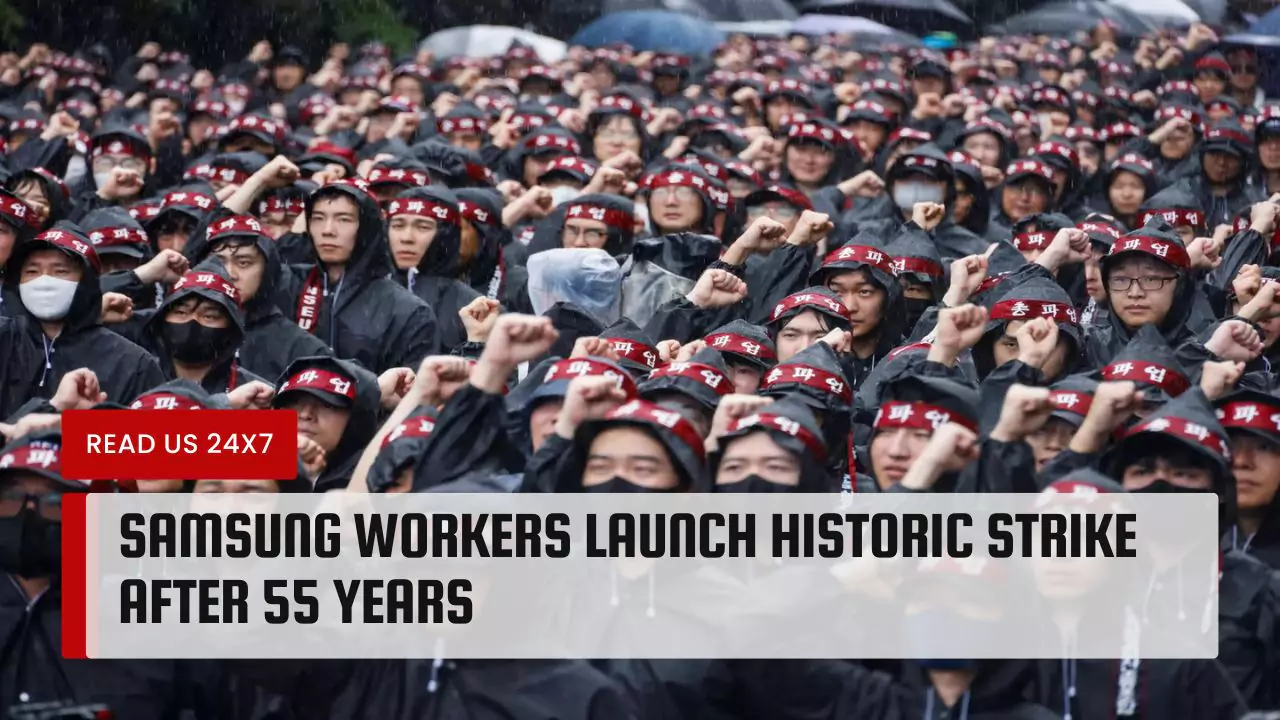The National Samsung Electronics Union (NSEU) has started a three-day strike at Samsung Electronics. This is the first time in the company’s 55-year history that organized workers have done something like this. The strike could stop the company from making chips unless management agrees to raise wages and give workers more rewards.
Background of the Strike
The National Samsung Electronics Union (NSEU), represents around 24% of Samsung’s total employees, with approximately 80% of them working in the device solutions division that manufactures semiconductors. Since January, the union has been negotiating with the management for higher wage increase rates, fulfillment of promises regarding paid leave, and improvements to incentive criteria.
However, when these negotiations reached an impasse, the union announced in May that they would be launching a strike. This strike marks the first time in Samsung Electronics’ 55-year history that unionized workers have taken such action.
The NSEU has reported that around 6,540 members expressed their intention to participate in the strike, with over 5,000 members from facility, manufacturing, and development divisions joining the three-day strike. The union has also warned of additional walkouts unless their demands are met.
Previous Strikes and Negotiations
This recent strike is not the first time Samsung workers have taken collective action. In 2019, there was a strike focused on improving working conditions. Additionally, in June 2024, around 28,400 workers participated in a one-day strike, emphasizing their demand for better pay.
The First Strike in Samsung’s 55-Year History
The current three-day strike involves 6,540 unionized workers across Samsung’s plants in South Korea, with a strong presence of employees from the chip manufacturing lines. While some argue that automated manufacturing lines may limit disruptions, the union remains steadfast in its commitment to achieving its goals. Should management fail to respond, the NSEU has not ruled out the possibility of launching another strike for an undetermined period.
The impact of this strike extends beyond Samsung’s operations. It reflects a pivotal moment in the company’s long history, as workers assert their rights and push for fair treatment. As the strike unfolds, the tech giant faces challenges in maintaining production while addressing the legitimate concerns of its workforce.


